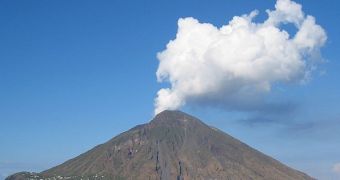While for most people volcanic eruptions are synonymous to destruction and devastation, for the environment they are nothing but good news. That is to say, the ash that is spilled into the atmosphere may pollute it with carbon dioxide, but it also contains particles that can reflect sunlight very effectively, thus lowering the overall temperatures in the areas around them.
During the last 450 years, as more and more volcanic activities were recorded and correlated with changes in the climate, scientists learned that the connection between the two was pretty tight, especially in what concerns the effects of eruptions on tropical climate. For example, in 1816, when the Tambora volcano erupted in Indonesia, crops were destroyed throughout Northern Europe and the northeastern part of Africa. As a result, that year became known as "The Year Without a Summer."
The new research, published in the current edition of the journal Nature Geoscience, was authored by Rosanne D'Arrigo, who is a scientist from the Tree Ring Lab at the Lamont-Doherty Earth Observatory, belonging to Columbia University. She and her team also looked at samples taken from coral reefs throughout the Pacific region, as well as at ice samples gathered from around the globe.
In tree rings, the team found that in the years corresponding to major eruptions, the width of the rings was smaller than usual. Tree rings only get smaller when it's cold outside, and the plant doesn't grow as fast as regularly. By analyzing the ice samples they've collected, the team learned that the ice layers associated with the eruptions also showed signs of shifts in the oxygen isotopes they contained, a change that only happens when the temperature drops below the mean.
"Particularly warm decades may have partially overridden the cooling effect of some volcanic events. This study provides some of the first comprehensive information about how the tropical climate system responded to volcanism prior to the instrumental period," D'Arrigo concludes.

 14 DAY TRIAL //
14 DAY TRIAL //